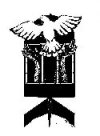

Nuclear Weapons Opponents Found Guilty

 Nuclear Weapons Opponents Found Guilty |
-From Nukewatch
WED. FEB. 21, 2001
MADISON, Wisc. -- Two nuclear weapons resisters, on trial in federal court here for deliberately cutting down part of a nuclear war communications system, were found guilty of damaging property of the U.S. Navy.
Bonnie Urfer, 49 of Luck, Wisc., and Michael Sprong, 38, of Marion, S. Dakota, face up to one year in prison and a $100,000 fine at sentencing, which presiding U.S. Magistrate Stephen L. Crocker scheduled for 1:30 p.m., May 4.
During the two-day trial, Urfer and Sprong admitted having sawed down three of the 4000 wooden poles that suspend the giant antenna wire -- the nuclear Navy's Project ELF submarine transmitter system -- referred to by opponents as a "starter pistol for nuclear war." The ELF transmitter sends one-way orders to submerged missile-firing, nuclear-powered British and U.S. submarines around the world.
In pre-trial orders Magistrate Crocker ruled "irrelevant and inadmissible" any and all testimony or evidence referring to Project ELF, Trident submarines, nuclear weapons, nuclear weapons policy, international law, the laws of war, or the U.S. Constitution (which explicitly elevates treaty law to a position superior to all federal statues). Bonnie and Michael had left at the scene lengthy written explanations of the outlaw status of nuclear weapons generally and the Trident missile system in particular.
The defendants were allowed to offer severely restricted testimony as part of a defense of "advice of counsel." The defense formally excuses actions that would otherwise be illegal, if the advice of an attorney convinced the defendants that their actions would be lawful. The federal damage charge requires proof that the defendants "knew that their actions were unlawful."
Bonnie and Michael both testified that they'd spoken with several attorneys prior to their June 24, 2000 disarmament action. All the lawyers explained that it would be lawful to interfere with the threat to fire nuclear warheads, since the International Court of Justice found in 1996 that this threat is an unlawful violation of universally binding humanitarian law.
Each of the 18 U.S. Trident submarines carry 24 extremely accurate "Trident II" missiles with up to 192 thermonuclear warheads. Combined, the Tridents threaten the equivalent of over 80,000 Hiroshima-sized bomb blasts. About half the Tridents subs are at sea at any one time, with their warheads continually on "alert" launch status.
Wed., Attorney Anabel Dwyer, an adjunct professor of law in at Cooley Law School in Lansing, Mich., testified for the defense. Trying to work within the court's extreme restrictions, Dwyer attempted to explain the genocidal power of H-bombs and the governing power of treaties when conflicts arise between federal statutes and the law of nations.
Defense attorney Kary Love asked, "What advice did you give the defendants regarding U.S. law applicable to ELF?" "That the general 'protection of property' statues did not apply to a nuclear weapons system such as ELF. That 18 USC [United States Code] 2441, the U.S. law on war crimes applies," Dwyer said. "That because of the nature of ELF, the threat it poses is a war crime, and therefore it would be lawful to use reasonable force to stop that threat."
Objections from the government moved the Magistrate to order the jury to disregard most such answers. The court's order "in limine" so hemmed-in Dwyer's responses -- like reading a paragraph without nouns -- that the jury may have been left with the impression that the defense was unsound. The jury deliberated less than three hours.
Closing arguments were presented by defense attorneys Margaret Danielson of the Univ. of Wisc. Legal Defense Program representing Bonnie Urfer, and Kary Love, of Holland Michigan representing Michael Sprong. Danielson reminded jurors that "What is yours to decide is whether the defendants believed their act to be lawful." Love rebutted the government's assertion that property rights are the first lessons we learn as children. Love said, "'Thou shall not kill,' is an earlier lesson learned and one that is far more fundamental to our humanity than respect for mere things."
